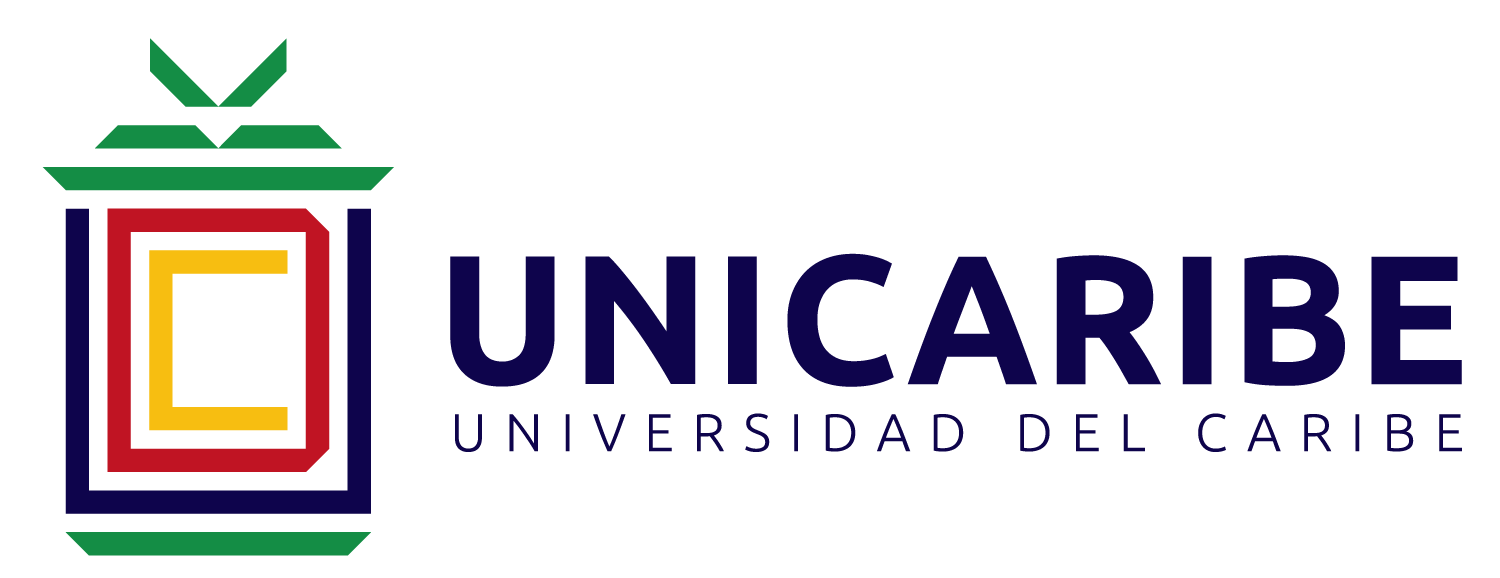
Environment and Disaster
Risk Management
The Universidad del Caribe in its commitment to society and the training of professionals responsible for the development and protection of its territory, incorporates into its institutional practice, policies, programs and activities of disaster risk management, sustainability and environmental sustainability.

Who are we?
Environmental and social management in the Dominican Republic is becoming increasingly important in both public and private organizations. National and international regulatory frameworks incorporate environmental and social management as fundamental axes of institutional management and good governance. In this regard, some references are presented: “The right that every person has to an integral education of quality, permanent, under equal conditions and opportunities, with no other limitations than those derived from their aptitudes, vocation and aspirations” (Dominican Constitution, Article 63).
On the other hand, the University of the Caribbean (UNICARIBE) is a signatory of the Pact for Educational Reform, signed on April 10, 2014, where it is established that education is a right and a public good of universal access and with equity; oriented to form citizens aware of their rights and duties, committed to the sustainable use of natural resources and environmental protection, among others. In addition, UNICARIBE held the national presidency of the Network of Latin American and Caribbean Universities for Disaster Risk Reduction, during the years 2017-2019 and won first place in the contest of the Sustainable and Resilient Universities Campaign, which was funded by OFDA/USAID.
In this sense, the environmental and social management of the Universidad del Caribe is based on the humanistic principles and values of the institution and operates through plans, programs, institutional development projects and its daily practice. Its philosophical foundations establish the following:
Mission
Management of UNICARIBE's environmental and social sustainability policy with relevance to the context, in order to promote a culture of care and protection of the environment, permanent disaster risk reduction and the well-being of its community.
Vision
To be a national reference in environmental and social management due to the results of its practice in the educational, community and institutional governance areas.
Values
Integrity
Respect
Service
Creativity
General Objective
To guarantee environmental and social management at the University of the Caribbean that corresponds to the guidelines demanded by global and national frameworks in a context of participation, continuous improvement and institutional development.
Specific Objectives
1. Strengthen UNICARIBE's internal governance based on clear and precise procedures on environmental and social management that allow for a permanent contribution to a healthy, sustainable and inclusive space.
2. Facilitate the flow of technical, social and environmental information on the different aspects related to the sustainable use and management of natural and human resources.
3. Create mechanisms for the promotion of a community that is more resilient to the effects of climate change, and at the same time, aware of the care and conservation of its resources.
Galería de imágenes
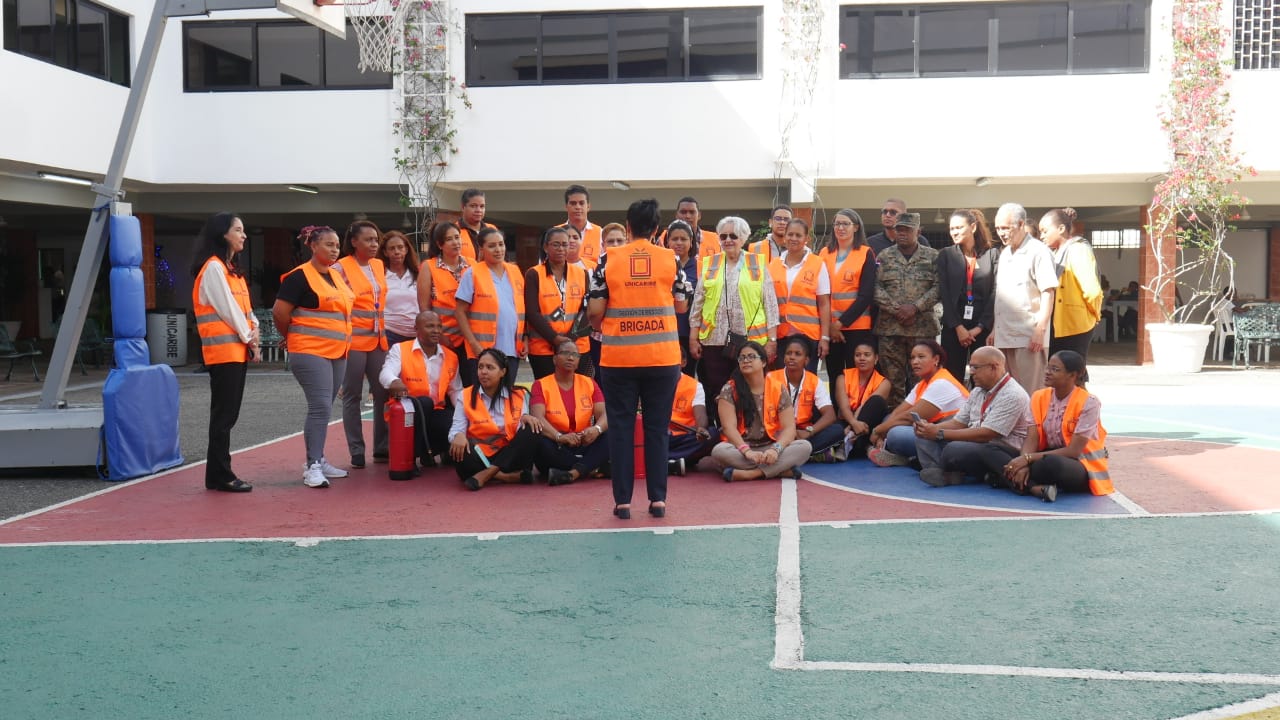
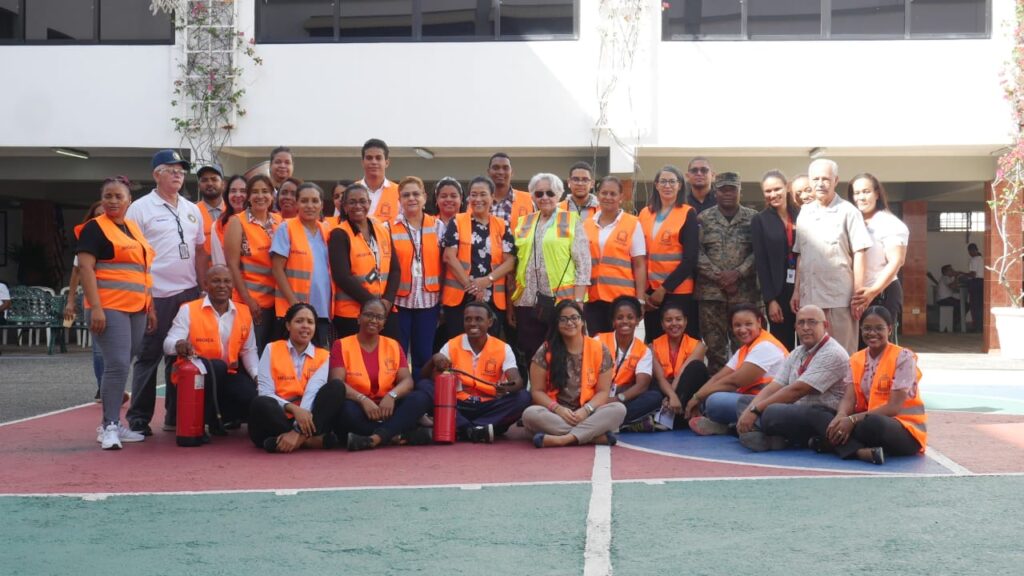
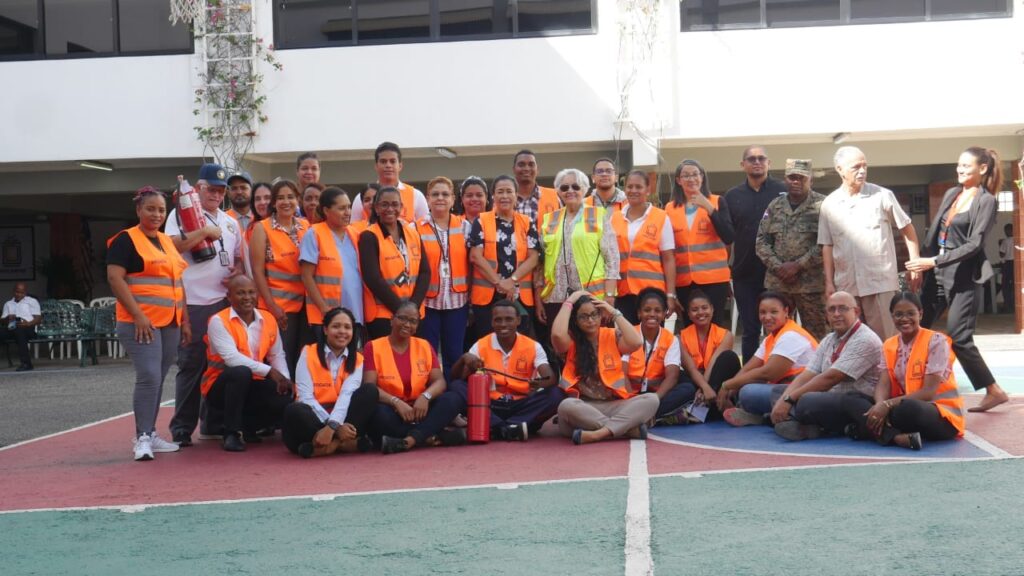
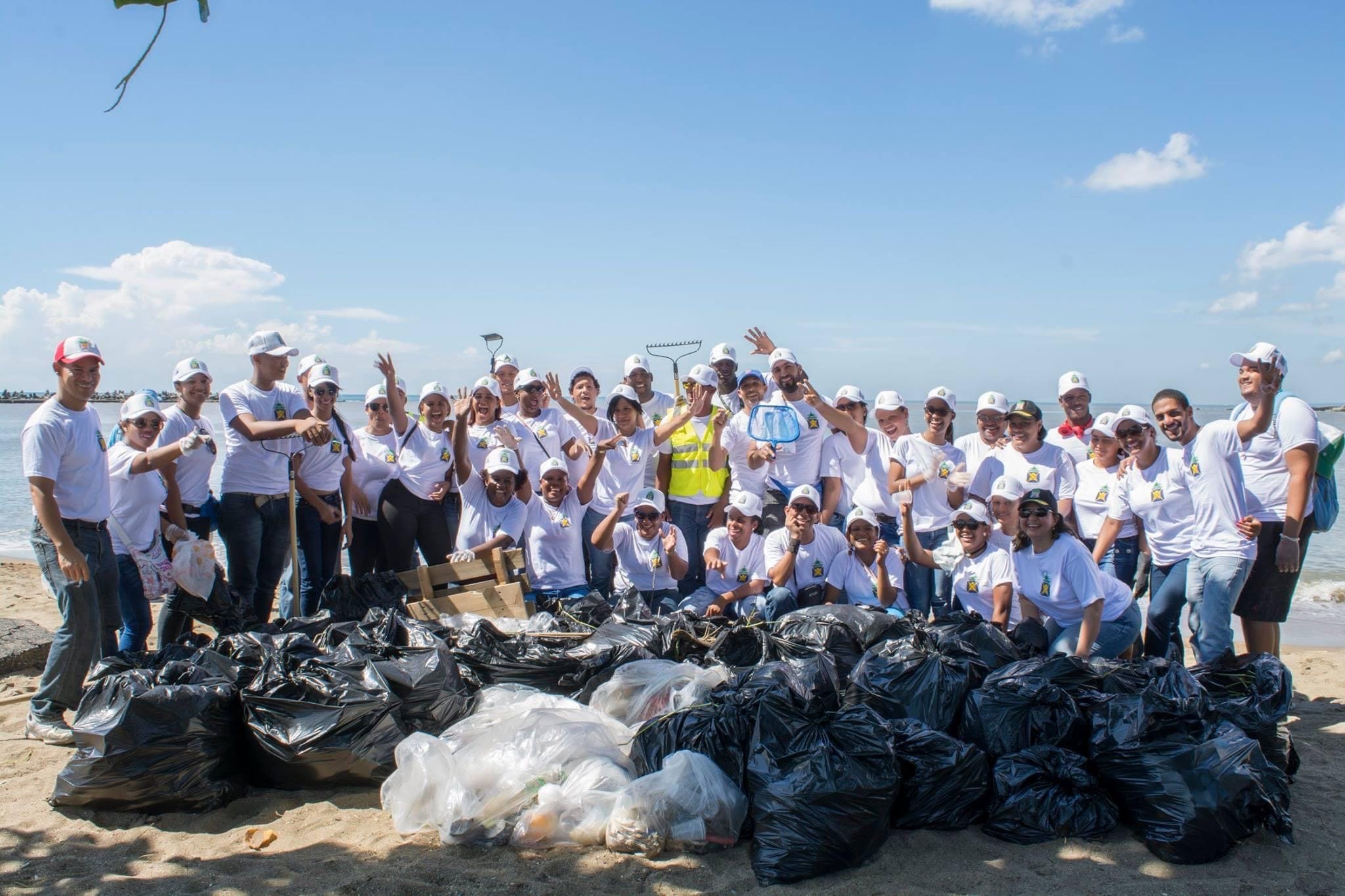
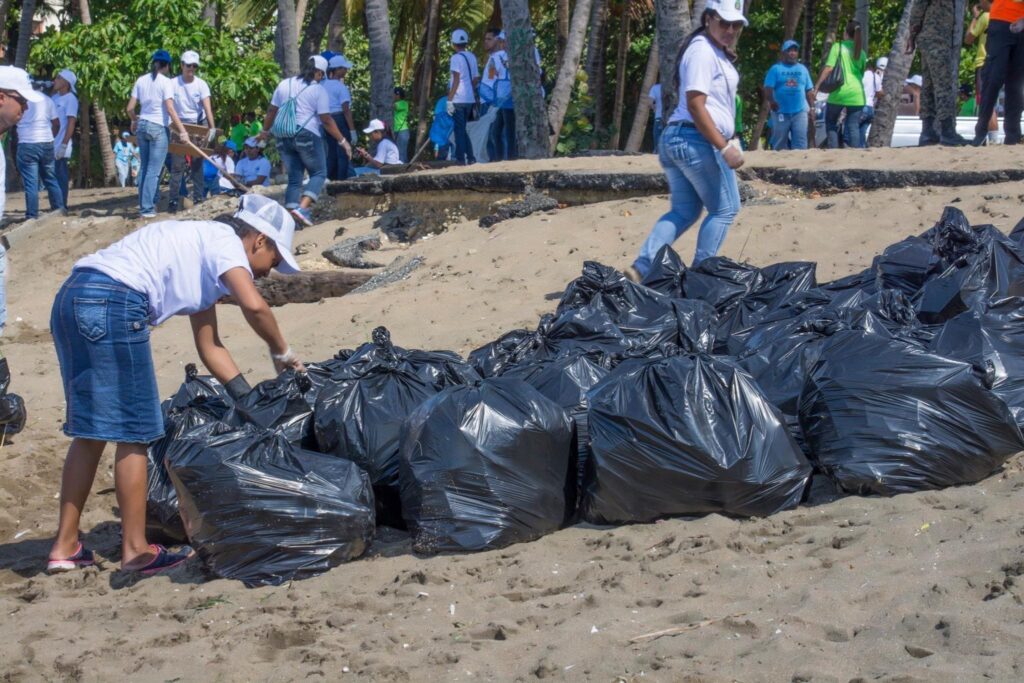
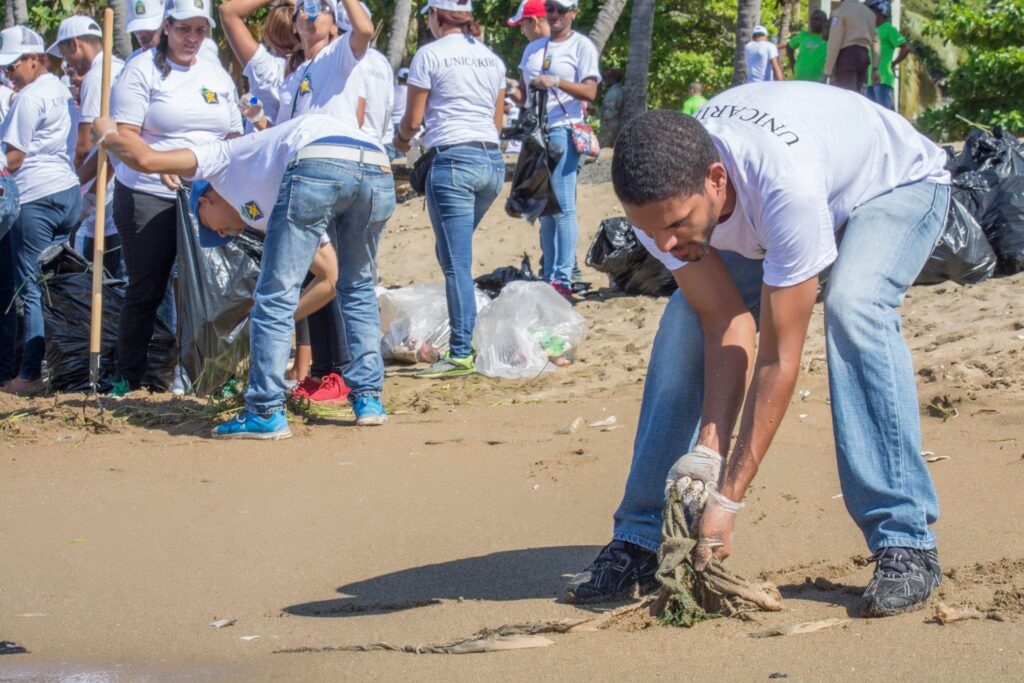

Who are we?
Environmental and social management in the Dominican Republic is becoming increasingly important in both public and private organizations. National and international regulatory frameworks incorporate environmental and social management as fundamental axes of institutional management and good governance. In this regard, some references are presented: “The right that every person has to an integral education of quality, permanent, under equal conditions and opportunities, with no other limitations than those derived from their aptitudes, vocation and aspirations” (Dominican Constitution, Article 63).
On the other hand, the University of the Caribbean (UNICARIBE) is a signatory of the Pact for Educational Reform, signed on April 10, 2014, where it is established that education is a right and a public good of universal access and with equity; oriented to form citizens aware of their rights and duties, committed to the sustainable use of natural resources and environmental protection, among others. In addition, UNICARIBE held the national presidency of the Network of Latin American and Caribbean Universities for Disaster Risk Reduction, during the years 2017-2019 and won first place in the contest of the Sustainable and Resilient Universities Campaign, which was funded by OFDA/USAID.
In this sense, the environmental and social management of the Universidad del Caribe is based on the humanistic principles and values of the institution and operates through plans, programs, institutional development projects and its daily practice. Its philosophical foundations establish the following:
Mission
Management of UNICARIBE's environmental and social sustainability policy with relevance to the context, in order to promote a culture of care and protection of the environment, permanent disaster risk reduction and the well-being of its community.
Vision
To be a national reference in environmental and social management due to the results of its practice in the educational, community and institutional governance areas.
Values
Integrity
Respect
Service
Creativity
General Objective
To guarantee environmental and social management at the University of the Caribbean that corresponds to the guidelines demanded by global and national frameworks in a context of participation, continuous improvement and institutional development.
Specific Objectives
1. Strengthen UNICARIBE's internal governance based on clear and precise procedures on environmental and social management that allow for a permanent contribution to a healthy, sustainable and inclusive space.
2. Facilitate the flow of technical, social and environmental information on the different aspects related to the sustainable use and management of natural and human resources.
3. Create mechanisms for the promotion of a community that is more resilient to the effects of climate change, and at the same time, aware of the care and conservation of its resources.
Ecological Community
Environmental Sustainability Policy
As part of its social responsibility, the management of the environmental and social system of UNICARIBE, INCORPORATES THE DESIGN AND IMPLEMENTATION OF PLANS, PROGRAMS AND PROJECTS of different natures with a clearly established cross-cutting axis in the areas of environment, disaster risk management and social development.
A. IN INVESTMENTS AND ACQUISITIONS
Investments must comply with legal permits (environmental permits, land use and seismic regulations) and feasibility studies to ensure their sustainability over time, for procurement purposes, to ensure that suppliers stand out for managing their processes in compliance with sustainable environmental and human development standards.
Procedures
I. Submission of requests. Always according to needs.
II. Submission of proposals.
III. Evaluation of proposals. Application of established environmental criteria.
IV. Proposal approval. According to the amount, Purchasing area or Executive Council.
B. IN DONATIONS
B. DONATIONSDonations shall correspond to the institutional mission, giving priority to funds that promote and support environmental and social development projects. The donor should always be a moral and ethical reference in his practice of care and protection of the environment.
Procedures
I. Presentation of offer as a donor.
II. Evaluation of the donor. Application of established criteria.
III. Approval of the donation
IV. Establishment of agreement and signature of the parties.
C. IN THE EFFECTIVE USE OF WATER AND ENERGY
The effective and rational use of water and energy is an institutional priority and is part of its identity. Its management will always be mediated by a program and action protocols as a guarantee of its sustainability.
Procedures
I. Establishment of criteria for its application.
II. Institutional program with policy and development lines for its development.
III. Application of protocols for the use of water and energy.
IV. Permanent evaluation of compliance with policies and protocols.
D. SOLID WASTE MANAGEMENT
Promotion and permanent awareness of integrated waste management for the reduction, reuse, recycling, recovery and valuation of waste.
Procedures
I. Establishment of prioritized areas. Academy (students) and administrative.
II. Development of educational and informative campaigns through institutional media.
III. Permanent updating of the formative contents in the subject of the general cycle “Environmental Education”.
IV. Application of concrete actions for the achievement of the policies, for example: Classification of organic and inorganic waste generated by UNICARIBE after collection by the local council or town hall.
V. Follow-up and evaluation of achievements and accomplishments.
Plans and Programs
As part of its social responsibility, the management of the environmental and social system of UNICARIBE, INCORPORATES THE DESIGN AND IMPLEMENTATION OF PLANS, PROGRAMS AND PROJECTS of different natures with a clearly established cross-cutting axis in the areas of environment, disaster risk management and social development.
- UNICARIBE Environmental and Social System
- Sustainable and Resilient UNICARIBE Plan
- Institutional Plan for Emergency and Disaster Response
- Solid waste management program
- Diploma in risk management
- Water and energy efficiency program
- Water and energy efficiency program
- Cyclonic Season
- Workshops
- Colloquia
- Earthquake Safety Steps
- Evacuation Drill 2022
